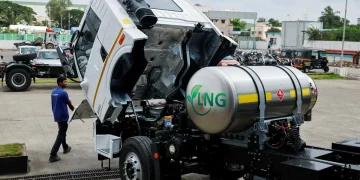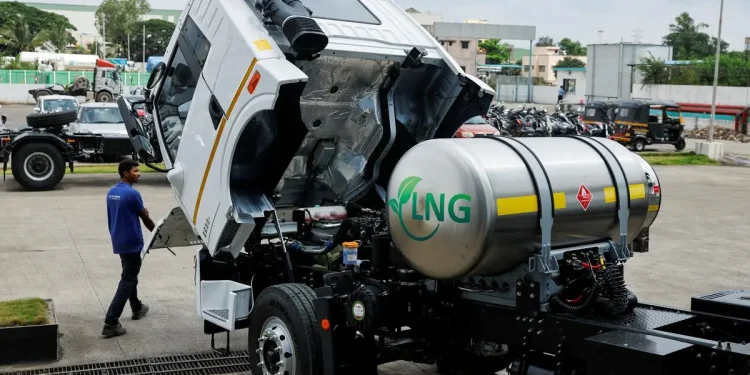By Eva Richardson | The Logistic News
April 11, 2025
In a landmark move for sustainable freight transport in South Asia, GreenLine Mobility Solutions, part of the Essar Group, has raised $275 million in equity to transform India’s heavy trucking landscape with low-emission technologies. The company plans to deploy 10,000+ LNG and electric trucks, scale up clean-fuel infrastructure, and help industry partners decarbonize their end-to-end logistics operations.
The announcement, made public this week, reinforces India’s commitment to carbon neutrality by 2070 and signals the private sector’s growing role in greening logistics at scale.
From Pilot Fleet to Scalable Green Logistics Platform
GreenLine Mobility has already made substantial inroads in sustainable freight, operating 650 LNG trucks that have logged over 38 million kilometers on Indian roads. These trucks have helped avoid more than 10,000 tonnes of CO₂ emissions, positioning the company as a pioneer in an emerging sector that blends clean energy with commercial logistics.
With the new round of capital, GreenLine plans to rapidly expand this model into a national green mobility platform, addressing long-haul emissions with an alternative fleet and backing it with the infrastructure needed to operate at scale.
“We are not just building a fleet; we’re building the ecosystem,” said Anshuman Ruia, Director at Essar Group. “This investment marks a shift toward future-ready logistics that deliver operational efficiency without compromising environmental accountability.”
Fueling the Transition: Infrastructure Comes First
To ensure operational continuity across India’s vast logistics corridors, GreenLine will develop a country-wide network of 100 LNG refueling stations, electric vehicle (EV) charging points, and battery-swapping hubs. These installations will strategically connect key industrial zones, ports, and major transportation routes.
“Range anxiety and refueling constraints are the top barriers to fleet conversion,” said Rashi Goenka, a clean mobility analyst at EcoTransit Advisors. “GreenLine’s infrastructure-first approach addresses these pain points head-on and sets the tone for wider adoption.”
Strategic Industry Partnerships in Place
The company is already collaborating with major industrial players such as Hindustan Zinc, JSW Steel, and Exide Industries, providing LNG-powered freight services that align with their respective ESG targets. These early-stage partnerships have not only validated the operational viability of LNG trucks but also opened the door to integrated supply chain decarbonization programs.
In addition to industrial logistics, GreenLine is exploring dedicated green fleet solutions for port operations, mining corridors, and FMCG distribution networks, all of which stand to benefit from emissions reduction and cost optimization over time.
Emissions Reduction, Without Sacrificing Performance
LNG trucks can reduce carbon emissions by up to 30%, while also slashing nitrogen oxide (NOx) and particulate matter by up to 85%, contributing to both climate and public health goals. With electric trucks entering the company’s roadmap, GreenLine is also laying the foundation for a multi-fuel, future-proof fleet—one that evolves with energy availability and regulatory pressures.
Ruia emphasized that GreenLine also intends to invest in clean energy generation to power its growing electric vehicle fleet sustainably. “Our goal is to ensure the trucks are as green in source as they are in output.”
India’s Logistics Evolution Enters the Clean Era
India’s logistics sector, long dominated by diesel-powered freight, is undergoing a dramatic evolution as infrastructure upgrades, environmental policy, and private innovation converge. With GreenLine Mobility’s initiative, the sector now has a viable pathway to scale low-emission transport solutions without sacrificing commercial performance or network reach.
Experts suggest that GreenLine’s model—where fleet deployment and infrastructure roll-out occur in parallel—could serve as a blueprint for other developing economies grappling with logistics decarbonization.
“This isn’t a one-off project,” said Goenka. “It’s a signal that green freight is no longer aspirational—it’s operational.”
Eva Richardson is a senior correspondent for The Logistic News, reporting on sustainable logistics, fleet innovation, and the intersection of transportation and environmental policy.





















